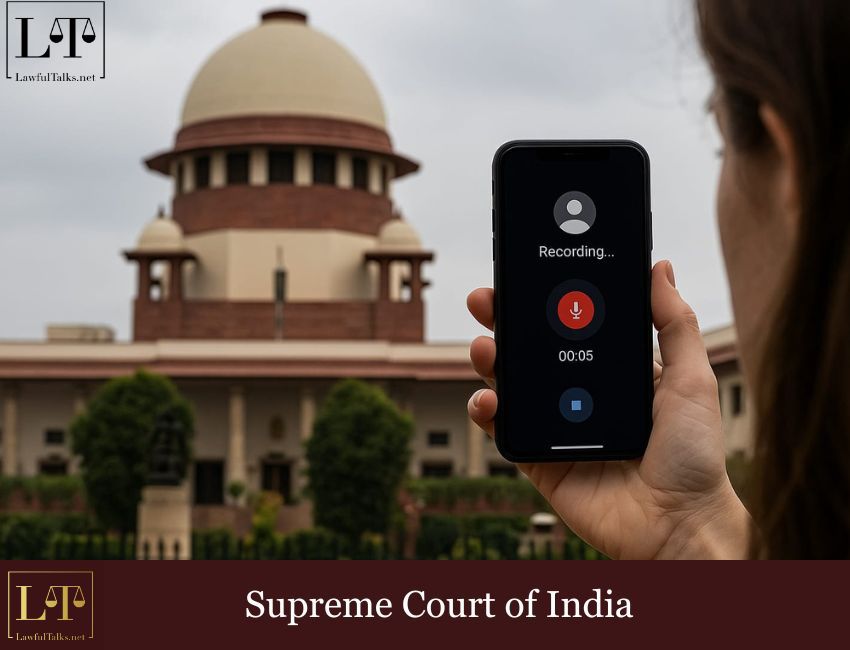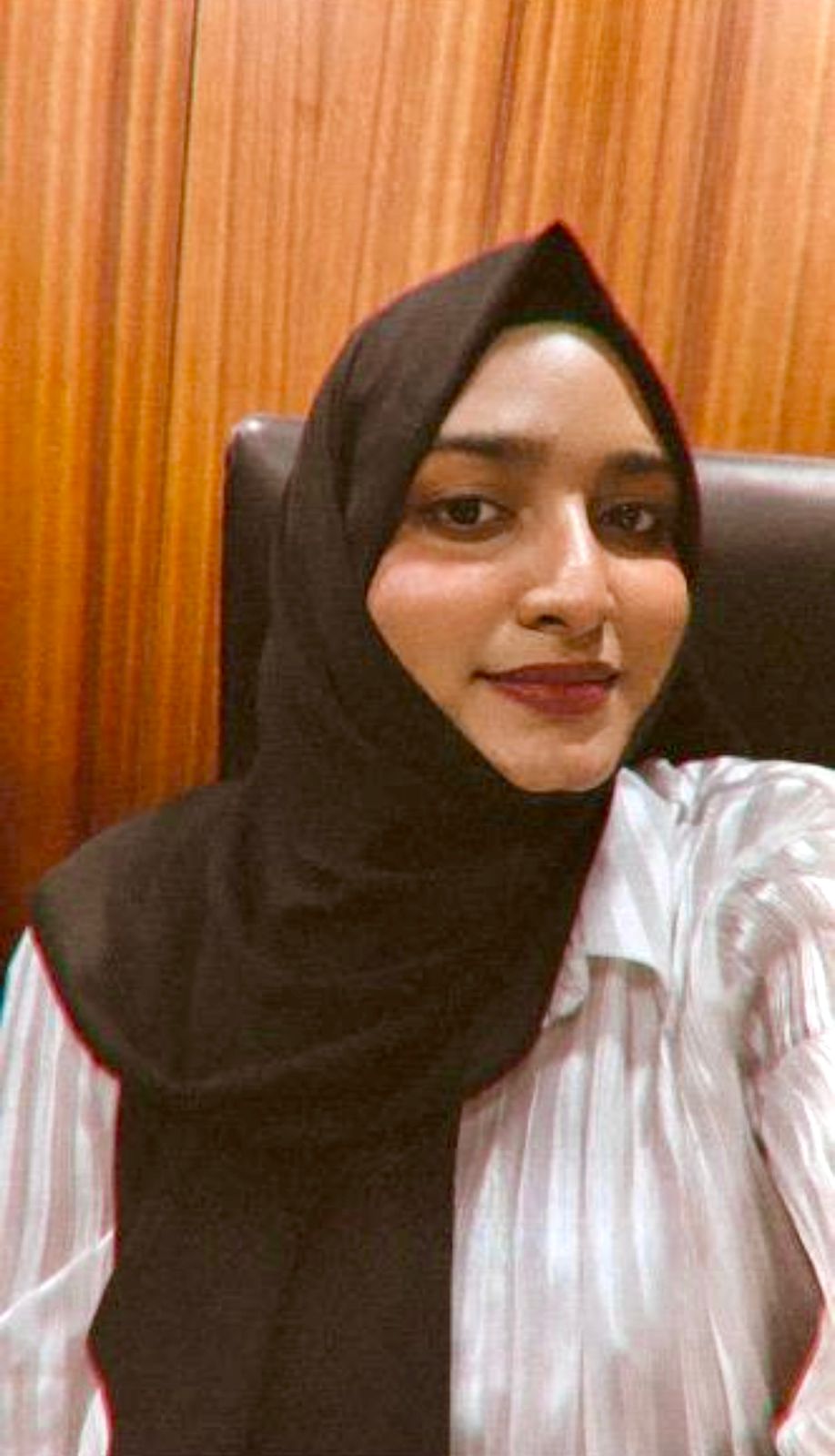Allahabad HC Sets Aside Afzal Ansari's Conviction, Allows Him to Continue as MP

In a significant development the Supreme court dismissed a ruling of the Punjab and Haryana High Court, which had determined that recording a wife’s phone conversations without her consent constituted a significant violation of her privacy rights and was inadmissible as evidence in Family Court. The Apex Court bench determined that such recordings could legally serve as evidence in matrimonial disputes.

Justice BV Nagarathna and Justice Satish Chandra Sharma of the Supreme Court presided over the matter.
Facts:
The case originated from a Special Leave Petition that challenged the High Court’s ruling that the recorded conversations could not be used in legal proceedings due to a violation of the wife’s privacy rights. The High Court in its decision had reasoned that secretly recorded conversations compromised the sanctity of trust in a marriage.
The Supreme Court contradicted this judgment noting that if a relationship had deteriorated to the point where spouses felt the need to secretly record conversations, it indicated a deeper issue regarding trust within the marriage, rather than being an outright breach of privacy. The bench also articulated that such recordings raised questions about the relationship itself.
For the record, Section 122 of the Indian Evidence Act holds that, “No person who is or has been married, shall be compelled to disclose any communication made to him during marriage by any person to whom he is or has been married; nor shall he be permitted to disclose any such communication, unless the person who made it, or his representative in interest, consents, except in suits between married persons, or proceedings in which one married person is prosecuted for any crime committed against the other.”
The Apex court interpreted the Section observing that, “Exception under Section 122 has to be construed in light of the right to a fair trial, which is also an aspect of Article 21 of the Constitution.” Effectively, spousal privilege cannot be absolute going by the first part of the section. Rather, it must be read along with the exception provided in the same section.
The Court held that no violation of privacy had occurred in this case. It noted that section 122 of the Indian Evidence Act does not confer any specific right to privacy. In fact, the provision explicitly includes an exception to the confidentiality maintained between spouses.
"We do not think there is any breach of privacy in this case. In fact, Section 122 of Evidence Act does not recognise any such right. On the other hand, it carves out an exception to the right to privacy between spouses and therefore cannot be applied horizontally at all. It does not touch upon the aspect of right to privacy as envisaged under Article 21 of the Constitution let alone invade upon such right. It does recognise the right to a fair trial, right to produce relevant evidence, and right to prove one's case against the spouse so as to avail relief sought", Justice Nagarathna clarified.
The court also dismissed the argument that admitting such evidence would put spousal relations on the threshold of disharmony and encourage snooping.
“Some arguments have been made that permitting such an evidence would jeopardise domestic harmony in matrimonial relationships as it would encourage snooping on the spouses, therefore, defeating the objective of section 122 of the Evidence Act. We don't think such an argument is tenable. If the marriage has reached a stage where spouses are actively snooping on each other, that is in itself a symptom of a broken relationship and denotes a lack of trust between them.”stated the ruling.
Background Of High Court Ruling:
In a divorce case filed under Section 13 of the Hindu Marriage Act, 1955, the Punjab and Haryana High Court reversed an earlier decision of the Family Court in Bathinda. The Family Court had permitted the husband to submit a compact disc containing phone conversations with his wife as evidence to support his claims of cruelty.
Challenging this the wife moved the High Court, arguing that the recordings were made without her consent and violated her fundamental right to privacy. Seeing merit in her argument the High Court struck down the Family Court’s order. It held that accepting such secretly recorded conversations as evidence would be inappropriate, especially when the manner and context in which the statements were made could not be reliably determined.
The High Court relied on precedents in the cases of Deepinder Singh Mann v. Ranjit Kaur and Smt. Rayala M. Bhuvaneswari v. Napaphander Rayala before arriving at their decision.
In challenging this conclusion, the husband had sought the Supreme Court's intervention, arguing that privacy rights must be weighed against the right to present evidence, particularly in divorce cases involving allegations of cruelty. He pointed out that situations often arise where the only witness to marital disputes is the spouse, necessitating alternative forms of evidence to establish claims of misconduct.
The petition noted, “In the matrimonial cases involving an allegation of cruelty - mental cruelty, the parties are bound to recreate the issues and events which were otherwise confined to the matrimonial home and the bedroom and away from the public eye, in the Courtroom. On many occasions, such events and issues between the married persons do not have any witnesses apart from the said married person. Such events are also not capable of being proved by documentary evidence. In the present age of technology and computers, such evidence can be brought to the court using the technology and modern electronic devices available. However, as a matter of caution, the Courts are to be circumspect in relying upon such evidence without satisfying itself as to the authenticity and reliability of such evidence recorded on the electronic devices.”
The petitioner also relied on Sections 14 and 20 of the Family Courts Act, 1984, emphasizing that these sections were introduced to facilitate a fair adjudication process and assist the court in uncovering the truth in matrimonial matters. He contended that the recorded phone conversation was presented as crucial evidence to substantiate his claims of cruelty by his wife.
Additionally the petition stated,“The recorded conversation held between the parties is another way of adducing evidence and recreating before the court the events of the matrimonial home just like the evidence of oral testimony of parties and other witnesses does. Without providing the aspect of cruelty, the petitioner would become unsuccessful in seeking a decree of divorce from the Family Court,”
The Supreme Court's decision marked an essential shift in acknowledging the admissibility of recorded conversations as evidence in family law matters.
Case Details: Vibhor Garg v. Neha
SLP (C) No. 21195/2021
Appearances: Adv Ankit Swarup and AoR Rishi Bhargava for the appellant; Sr Adv Gagan Gupta for the respondent.

Anam Sayyed
4th Year, Law Student
Latest Posts
Categories
- International News 19 Posts
- Supreme Court 352 Posts
- High Courts 366 Posts




























































































































































































































































































































































































































































































































































































































































































































































